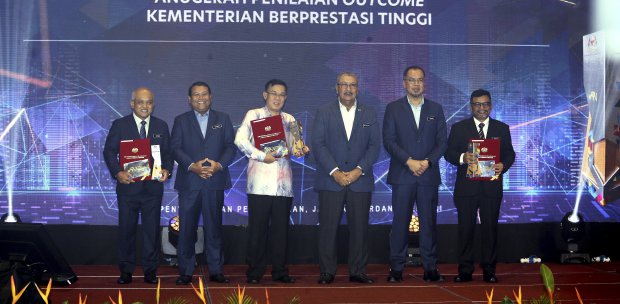THIS week, I was conducting a training programme for a large Malaysia-based construction company with about 800 employees. Times are challenging for most businesses.
Everyone has had to tighten up and increase their output and efficiency.
There was a senior member of staff in this session who asked a very pertinent question considering we are all going through now. He asked how he could maintain and foster proper team dynamics, while still dealing firmly with underperformers.
This is a real quandary many leaders face now. You have to be compassionate under present circumstances yet you need deal with people who not functioning well, appropriately.
Teamwork is only attained when you develop strong relationships with your co-workers. And these connections are predicated on an attitude that is based on shared purpose.
You have to offer this clarity. The trust that is required to build good cooperation only ensues when there is exactness in terms of goals, roles and processes.
And everything begins right at the hiring stage.
If you hire the wrong type of person, your existing staff will suffer the consequences. Being clear about what you want at this juncture will almost certainly guarantee that a potential new employee does not end up being a disruptive element in your team.
The common method of acquiring new staff starts when you generate a job description. This is followed by interviewing candidates based on that description. The emphasis at the hiring phase is to match the applicant with the given job description.
Traditionally the focus is always on the "job description".
Let me offer you an alternative perspective.
Do not focus on the job description. Instead, establish the "person specification" first. Rather than listing down what the job entails, list out the type of person you want working with and for you.
Write down all the attributes that the person needs to have. Do they need strong communication skills? Do they need to be versatile? Do they need to work in smaller teams? Do they need to take on multiple functions? Do they need to have a strong ability to bounce back from setbacks?
Once you are clear about what that person needs to be like, you can concentrate on matching the candidate with these personality traits. If you do this correctly, you will actually be hiring people who meet the real demands of your company.
It is most important to invest time, energy, and effort to find talent with the right temperament that complements your existing team.
Just remember that if you select the right person, you can train them for any job description.
The next thing that will increase teamwork is when you establish rules of engagement.
These are guidelines for the reporting structure, and also for clear delineation of roles. Each member of your team needs to be absolutely accountable for their own role and function.
Establishing these rules will help prevent any conflict from getting out of hand.
The biggest destroyer of team morale is unresolved conflict. Conflicts in themselves are not bad. If they are managed properly, differences of opinion can provide fertile ground for new ideas to be developed. But unanswered, conflicts that fester can damage the dynamics of your team.
In your organisation, if you do not have in clear sight who makes the final decision in the event of a skirmish, you will find it hard to maintain sustainable teamwork.
Next, you must make your organisation inclusive. Inclusiveness nurtures collaboration.
Many organisations are run like secret societies where a select few in power make all the decisions. These people will say that they are hired to make decisions for the common good of everyone.
This may well be the case.
But unless you work in the military, or if you are in a war zone, where strict adherence to a chain of command is a matter of life and death, a rigid and inflexible attitude excludes team members from giving useful input or participating in decision-making.
When your team does not have a say in what happens to them, they will have no sense of ownership. If you want to create a proper workplace, you must give people an avenue to express their views.
In an excellent workplace, people will seek out skills, and will be interested to learn, grow and develop.
This will only materialise when your team is confident enough to voice their opinions about things. It is up to you to create an environment where your team is interested to have a say because they want to add value to the work.
Such inclusiveness will allow for your people to have freedom to influence their own work processes. And, it is a well-established fact that such workplace autonomy yields tremendous results.
So, to accelerate the process of establishing purpose-driven teamwork, you must have clarity by hiring the right people, establish ground rules for roles, and create an inclusive workplace.
It is this type of team leadership that will help you through these challenging post-pandemic times.
Shankar R. Santhiram is managing consultant and executive leadership coach at EQTD Consulting. He is also the author of the national bestseller "So, You Want To Get Promoted?
The views expressed in this article are the author's own and do not necessarily reflect those of the New Straits Times






